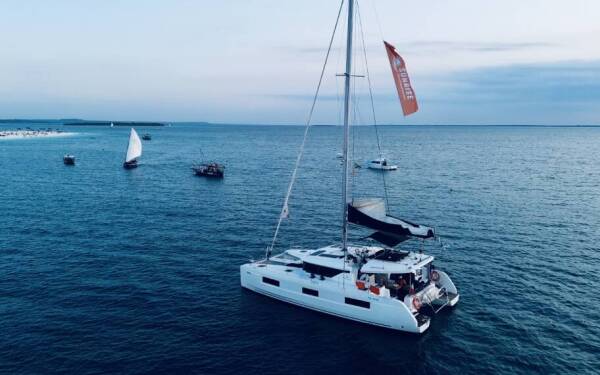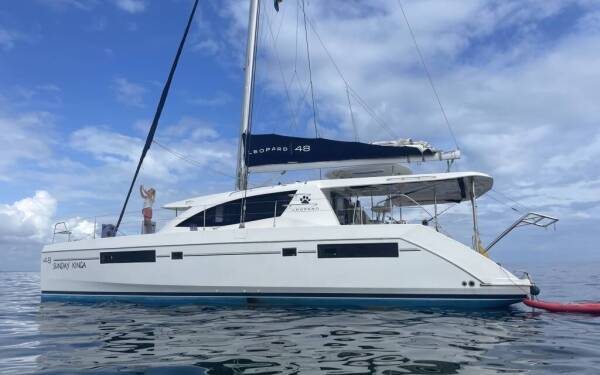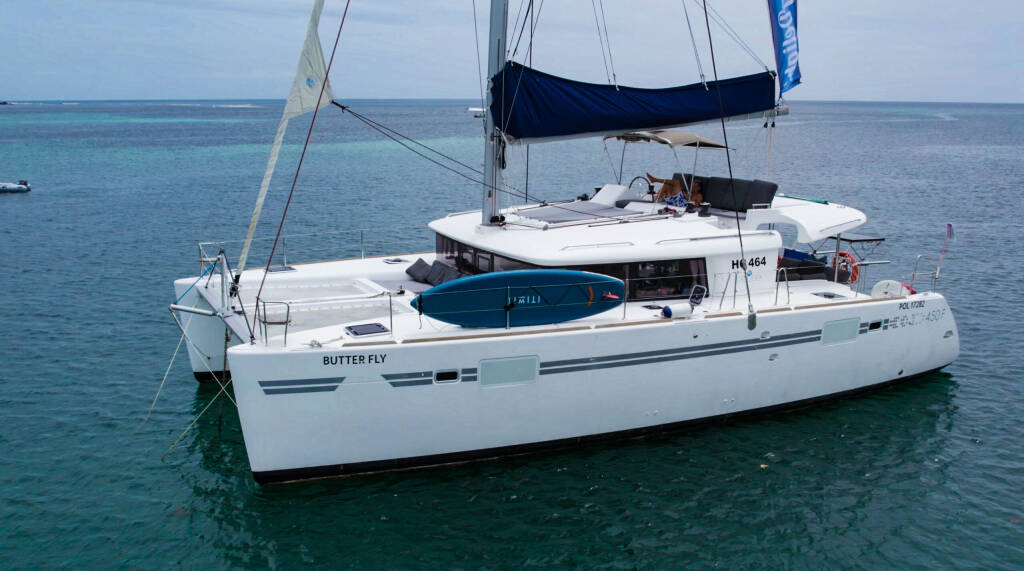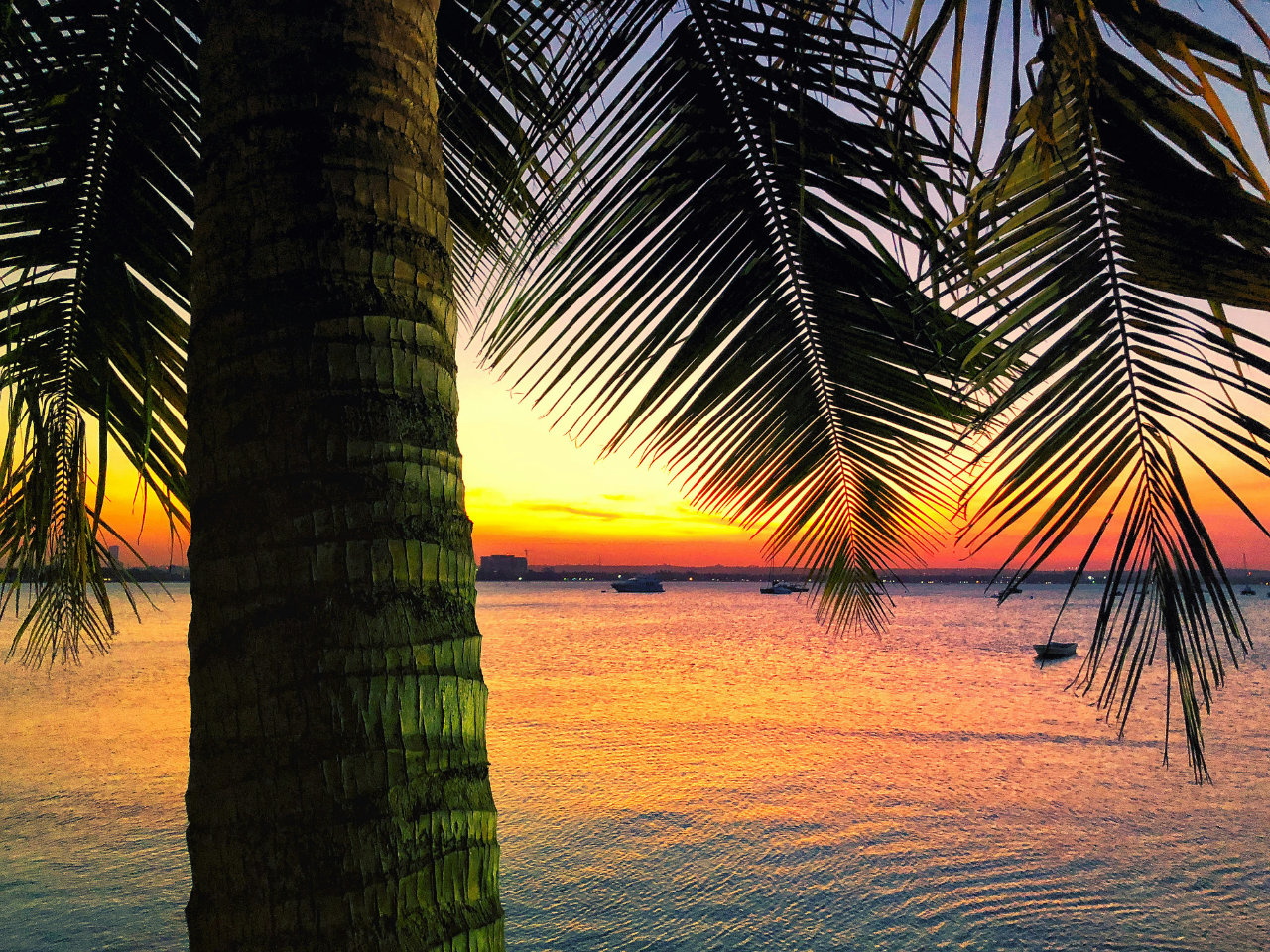Tanzania
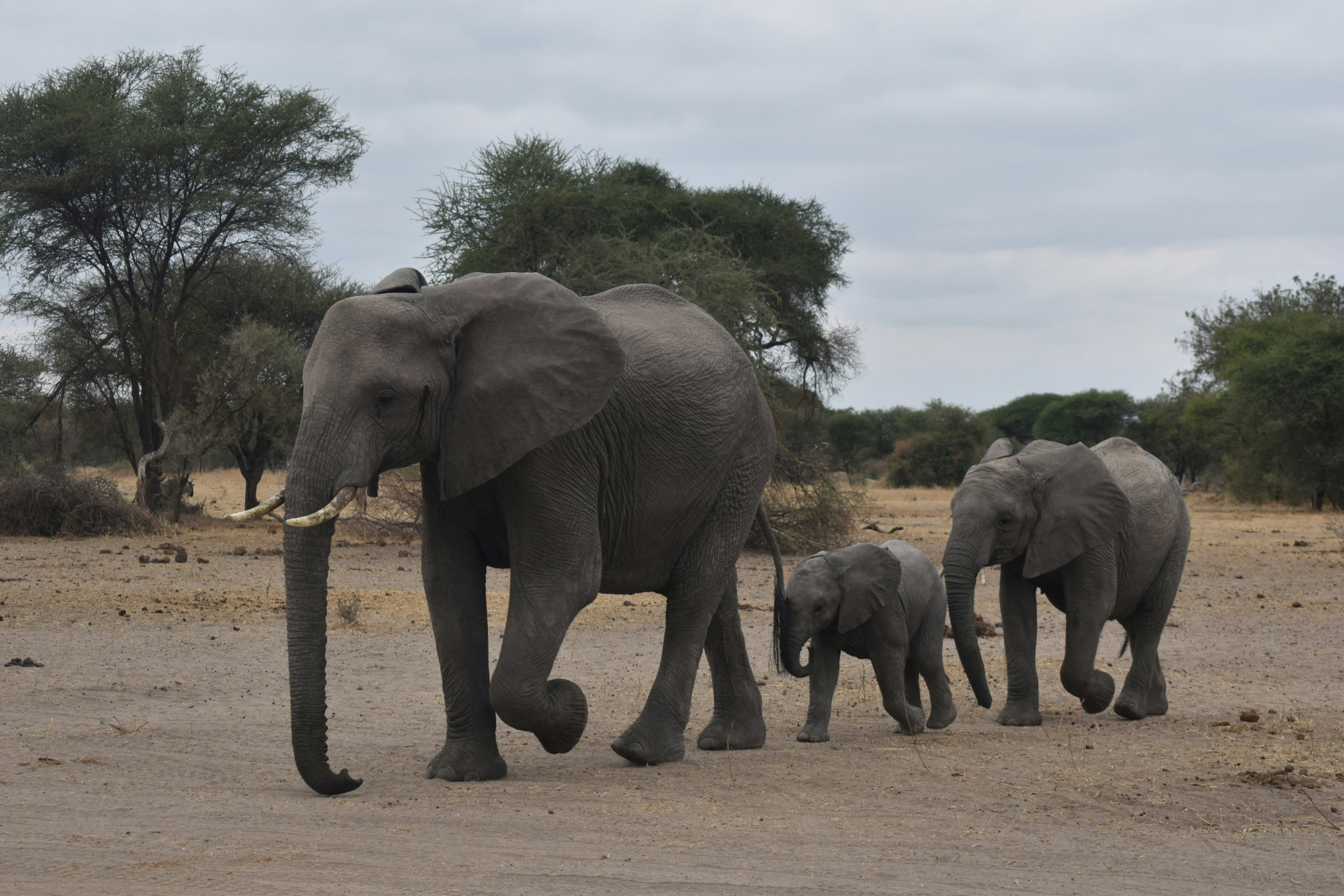
Tanzania: a land of diversity and adventure
Tanzania, a country of natural beauty and cultural diversity, lies in the heart of East Africa. It stretches from the vast savannahs of the Serengeti to the white sandy beaches of the tropical islands of Zanzibar and Pemba. Home to Africa's highest mountain, the majestic Mount Kilimanjaro, and some of the world's most famous national parks, Tanzania is a dream destination for nature lovers and adventurers. The Serengeti and Ngorongoro Crater are famous for the 'Great Migration', when millions of wildebeest, zebra and gazelle migrate across the vast plains.
Tanzania's coastline, including the Zanzibar Archipelago, offers stunning beaches and crystal-clear waters for sailing, diving and snorkelling. Historic towns such as Stone Town on Zanzibar are rich in culture and history, influenced by Arab, Indian and African traditions. The vibrant markets and rich cultural heritage make them fascinating destinations.
But Tanzania is not only known for its stunning natural beauty, but also for its hospitable people and diverse cuisine, which combines traditional African, Arabic and Indian influences. Whether you are on safari in the wild plains, climbing Mount Kilimanjaro or exploring the exotic islands, Tanzania promises an unforgettable experience in one of Africa's most diverse and beautiful countries.
Climate and Sailing Conditions in Tanzania
Weather and Climate

Tanzania has a tropical climate which varies according to region and altitude. The coast and islands such as Zanzibar, Pemba and Mafia are hot and humid, while inland temperatures are milder due to the higher altitude. There are two rainy seasons: the long rainy season from March to May and the short rainy season from October to December. The dry season, from June to October, is the best time for outdoor activities such as safaris, hiking and sailing.
On the coast and islands, temperatures hover between 25°C and 30°C throughout the year, with coastal winds keeping the weather pleasantly cool. Water temperatures are ideal for swimming, diving and snorkelling, averaging between 25°C and 29°C.
Sailing Conditions
Tanzania offers some of the best sailing in the Indian Ocean, particularly around the islands of Zanzibar, Pemba and Mafia. The calm waters and moderate winds create ideal conditions for sailors, while the coral reefs and rich marine life offer breathtaking snorkelling and diving.
The dry season from June to October is considered the best sailing season as the trade winds are moderate and stable. During the rainy season, especially from March to May, storms and heavy rainfall can make conditions difficult. Sailors should therefore avoid these months or be well prepared. The coast of Zanzibar is renowned for its sheltered bays, ideal for anchoring boats, and the many small islands make for fantastic stopovers.
Travel tips for yacht charter clients: How to get to Tanzania
Plan your trip:

Tanzania offers yacht charter enthusiasts ideal sailing conditions along the Indian Ocean coast, especially in the waters around Zanzibar, Pemba and Mafia. It is important to bear in mind the best time to travel. The dry season from June to October is ideal for sailing, while the rainy seasons from March to May and from October to December are less favourable due to strong winds and storms. Find out about local weather conditions before deciding on your sailing route.
Arriving by air:
Most international visitors arrive in Tanzania by air. The two main airports are Julius Nyerere International Airport in Dar es Salaam and Abeid Amani Karume International Airport in Zanzibar. Many yacht charter bases are located in Zanzibar City or in Dar es Salaam, so it is only a short drive from either airport to the coast or to the marinas
Transport to the marinas
There are several options for getting from the international airports to the marinas:
Taxis and private transfers are widely available and provide a quick and convenient way to reach the coast.
Domestic flights to Pemba or Mafia are also an option if your yacht charter starts from one of the smaller islands.
Ferries connect Dar es Salaam with Zanzibar, a cheap option for travellers with time on their hands who want to enjoy the sea.
Preparing for the charter
As Tanzania is in a malaria area, charter customers should take appropriate precautions, such as carrying mosquito repellent and taking malaria prophylaxis. Local marinas offer a good service to prepare for your trip and make your adventure in the Indian Ocean a safe one.
Geographical location

Tanzania is located on the east coast of Africa, bordering the Indian Ocean to the east. It borders Kenya and Uganda to the north, Rwanda, Burundi and the Democratic Republic of Congo to the west, and Zambia, Malawi and Mozambique to the south. The central part of the country consists mainly of plateaus, while the coastal region is flat and tropical. The capital, Dodoma, is in the central highlands, while Dar es Salaam, the country's largest city and economic centre, is on the coast.
Coastline
Tanzania's coastline stretches for more than 1,400 kilometres along the Indian Ocean. This coastal region is characterised by beautiful beaches, sheltered bays and picturesque fishing villages. Off the coast are some of the most beautiful islands in the Indian Ocean, including Zanzibar, Pemba and Mafia Island. These islands are part of the Zanzibar Archipelago and are renowned for their coral reefs, colourful marine life and historic towns such as Stone Town on Zanzibar.
The coast itself offers a mix of long unspoilt beaches, dense mangrove forests and lagoons teeming with marine life. The sheltered bays make the region ideal for yachtsmen, while the coral reefs and sandbanks provide perfect conditions for snorkellers and divers. The coast of Zanzibar and the offshore islands are particularly popular with yacht charter guests due to the calm and sheltered waters.
In addition to its maritime charms, Tanzania's varied coastline also offers cultural treasures and a rich history that is reflected in the coastal towns and villages.
Zanzibar

Zanzibar, an archipelago off the east coast of Tanzania, is world famous for its stunning beaches and the historic city of Stone Town, a UNESCO World Heritage Site. The archipelago, made up of the main islands of Unguja and Pemba, offers crystal clear waters, pristine coral reefs and a rich history with Arab, Indian and African influences.
Sailors love the calm waters and the many sheltered bays ideal for anchoring. The island is also a paradise for divers and snorkellers, who can discover colourful coral reefs and a rich marine fauna. In addition to its natural wonders, Zanzibar also offers a vibrant cultural scene, especially in Stone Town, with markets, music and a variety of restaurants serving local and international cuisine.
Pemba Island
Pemba, also known as the 'green island', lies to the north of Zanzibar and is less developed for tourism, but all the more unspoilt and idyllic. The island is surrounded by dense mangrove forests and extensive coral reefs, making it a popular destination for sailors and divers. Pemba is renowned for its secluded beaches and spectacular marine life, offering divers an unforgettable experience. The island's tranquil atmosphere and hospitable people make Pemba an ideal place for travellers seeking peace and seclusion. In addition to its natural beauty, the island offers historical sites that bear witness to a rich culture and history.
Mafia Island
Mafia Island, located south of Zanzibar, is a true paradise for nature lovers and adventurers. The island is part of the Mafia Island Marine Park, a protected area known for its coral reefs and rich marine life. The area is one of Tanzania's best diving destinations, offering everything a diver could wish for. In addition to manta rays and whale sharks, Mafia Island offers an amazing variety of fish and other marine life. On land, travellers will find dense mangrove forests, quiet beaches and small traditional villages that have preserved the island's charm and authenticity. The island is ideal for travellers seeking seclusion and adventure in unspoilt nature.
Dar es Salaam, Tanzania

Dar es Salaam, the largest city in Tanzania and one of the most important economic centres in East Africa, is situated on the coast of the Indian Ocean. This vibrant metropolis combines modern urbanity with traditional African flair.
For sailors, Dar es Salaam is an important base for yacht charters and exploring the coast. Some of the region's finest beaches are nearby, including Coco Beach and Bongoyo Island.
The city itself offers a mix of modern shopping centres, historic markets and a vibrant nightlife. Attractions such as the National Museum and Botanical Gardens offer a glimpse of Tanzania's history and culture.
History
Tanzania is a country with a fascinating and eventful history. The coastal regions, especially Zanzibar and the surrounding islands, were once an important centre for the slave and spice trade. Arab and Persian traders settled there as early as the 8th century and had a major influence on the development of the region. These influences are particularly evident in Zanzibar's Stone Town, whose narrow streets, palaces and mosques still bear witness to its Arab and Indian past. Until independence in 1961, Tanzania was a German and then a British colony. The country was the birthplace of the Arusha Declaration, which laid the foundations for the policies of its first president, Julius Nyerere, and the introduction of Ujamaa socialism.
Culinary

Tanzanian cuisine is as diverse as the country itself, combining Arab, Indian and African influences. The coastal regions in particular are known for their rich seafood dishes, including grilled fish, seafood stews and the famous pilau, a rice dish with spices. Chapati and samosa are other popular dishes that reflect Indian cuisine. In coastal towns and on islands such as Zanzibar, fresh coconuts and exotic fruits such as mangoes and papayas are an integral part of the local diet. Known as the 'spice island', Zanzibar also produces cloves, cinnamon and cardamom, which are used in many traditional dishes.
Culture
Tanzania is a country of rich culture and diverse ethnic groups. More than 120 different tribes live in Tanzania, including the famous Maasai. Each group has its own traditions, dances and music. The Swahili culture is particularly strong in the coastal regions and islands. This culture has its roots in Arab influences, which are reflected in the architecture, clothing and music. Traditional dances and songs such as the Ngoma are an integral part of cultural life and are performed on festive occasions. Art is also an important part of Tanzanian culture, with Tinga Tinga paintings and Makonde wood carvings particularly popular with tourists.
Tanzania is a fascinating country combining natural wonders, rich history and diverse culture. From the majestic plains of the Serengeti to the white sandy beaches of Zanzibar, the country offers a wealth of experiences for travellers seeking adventure, relaxation and cultural enrichment. Historic towns such as Stone Town bear witness to Tanzania's eventful past as a trading centre, while modern cities such as Dar es Salaam form the economic heart of the country.
Culinary specialities, heavily influenced by Arab, Indian and African traditions, are another highlight of any trip. Seafood, spices and tropical fruits characterise the dishes served in markets and restaurants throughout the country. The island of Zanzibar, known as the 'spice island', offers delicacies that reflect the influences of different cultures.
Tanzania is not only a paradise for nature lovers and history buffs, but also for those seeking authentic cultural experiences. Whether you climb Mount Kilimanjaro, go on safari in the Serengeti or stroll through the lanes of Stone Town, Tanzania is a country that leaves a lasting impression. It is a destination that will never cease to amaze you with its hospitality, beauty and diversity, providing you with unforgettable experiences.
Exclusive Yacht Charters in Tanzania – Sail the Indian Ocean’s Hidden Gem
Discover the unparalleled beauty of Tanzania’s coastline and islands with a private yacht charter. Cruise along the turquoise waters of Zanzibar, explore secluded beaches, and dive into vibrant marine life for a one-of-a-kind African yachting experience in the Indian Ocean.
Dar es Salaam
Dar es Salaam, Tanzania's largest city and former capital, is located on the coast of the Indian Ocean and is the economic heart of the country. As the main port city and a hub for trade and transport, Dar es Salaam is the gateway not only to Tanzania but to the whole of East Africa. Combining modern city life with traditional African charm, the city is a fascinating melting pot of cultures, with influences from Africa, Asia and the Middle East.
Zanzibar
Zanzibar, an archipelago in the Indian Ocean, lies about 40 kilometres off the coast of Tanzania and consists of the main islands of Unguja and Pemba, as well as numerous smaller islands. Often referred to as the 'Spice Island', Zanzibar is renowned for its picturesque beaches, crystal clear turquoise waters and rich history. As the centre of the slave and spice trade, the archipelago has a colourful past that is still reflected in its architecture and culture.

